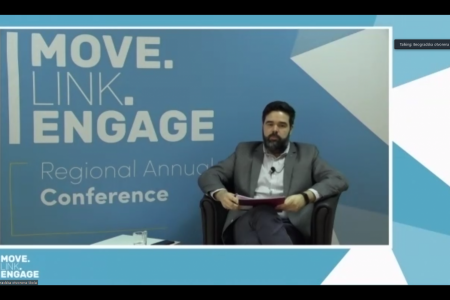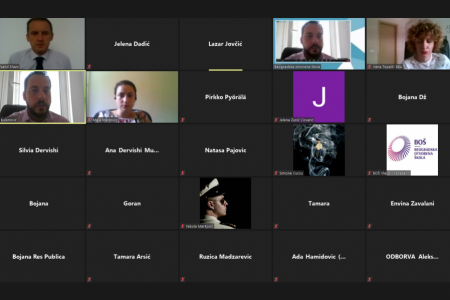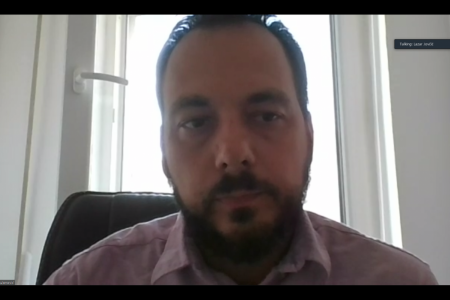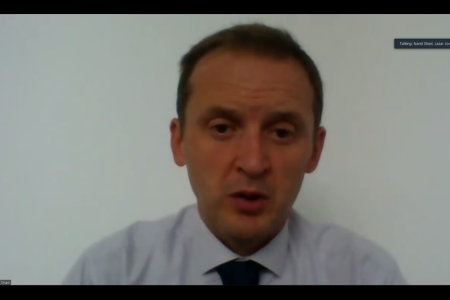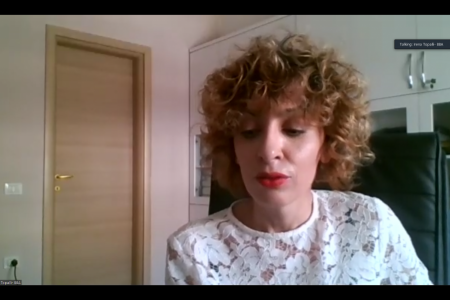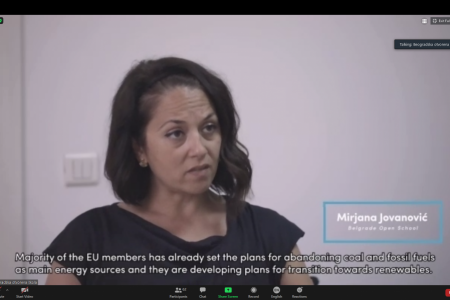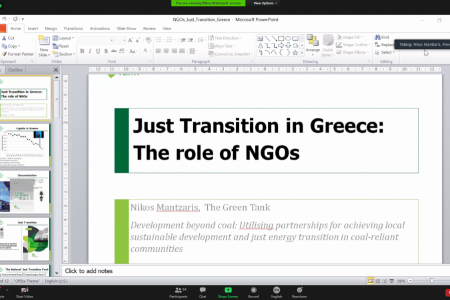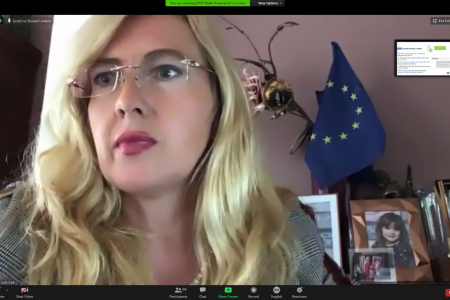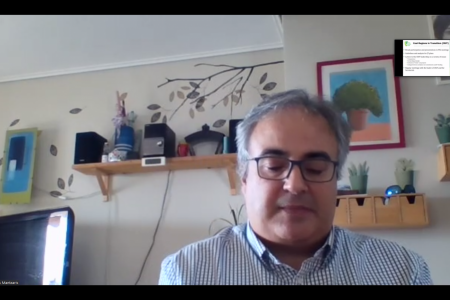The sessions of the last day of the Move.Link.Engage conference held on September 23rd, opened discussions on the topics of youth employability development and local sustainable development in terms of just energy transition in coal-reliant communities.
At the beginning of the year, the World Bank published data regarding high employment, ie record low unemployment rate in the Western Balkans. However, the pandemic and the impending crisis will particularly affect the unemployment of vulnerable groups such as young people. How will the EU, as well as the countries of the Western Balkans, minimize the consequences of the crisis, and what will be the responses of civil society organizations in the region? Can programs such as "Youth Guarantee" address key employment issues? Nand Shani, Project Manager for Employment and Social Affairs of the Regional Cooperation Council, Jan Zlatan Kulenović, Director of Programs at the Regional Youth Cooperation Office, Maja Marković, Project Manager of Group SOS Pulse and Irena Topali, Program Manager of Beyond Barriers Association looked for answers on these questions.
Shani pointed out that without political support, initiatives and important instruments such as the "Youth Guarantee" cannot be implemented and we have example of good practice in Northern Macedonia. Marković especially emphasized the necessity of legislative regulation of the field of social entrepreneurship. Although realization of exchanges is not possible currently, Kulenović said this is a chance to develop new opportunities for young people to acquire skills much needed for changing labor market. However, Topalli added that it is necessary to work with young people who do not have access to the Internet and other resources related to digital development. In this sense, the civil sector is a mediator between decision-makers and young people. Topali also spoke about the three-year initiative implemented by the BOS and partners from the Western Balkans - WeB4YES, within which several practical policy proposals on youth employability were published, national forums were established as a cross-sectoral space for exchanging ideas between young people, academics, decision-makers, and representatives of the business and civil sectors. WeB4JOBS platform has also been developed, which aims to introduce and motivate young people with opportunities for exchange and mobility in the region.
The conclusion of this panel referred to the potential and need for cooperation between business and civil sectors, as Ivan Topalović, panel moderator and project manager at the BOS pointed out, only through a comprehensive partnership we can solve the key challenges facing Western Balkans societies - youth unemployment, lack of entrepreneurial initiatives and development of social entrepreneurship.
The last panel within the Move.Link.Engage conference on the energy transition process was addressed by the representative of the European Commission Anna Sobczak, Senior Policy Analyst of Green Tank Nikos Mantzaris and professor at the Faculty of Technology and Metallurgy in Belgrade Petar Đukic. The panel was moderated by Ognjan Pantić, BOS project coordinator.
It is extremely important to involve all stakeholders in the process of energy transition and create the widest possible dialogue regarding the transition to renewable energy sources, the panelists concluded. The process of a just energy transition can connect local communities and enable them to develop itself following example of good practice. The importance of the non-governmental sector can be seen in those countries where this process has not started and exactly there is space for additional action, which should influence decision-makers to abandon the use of coal for energy production. Although the energy transition is a process that has begun in many parts of the world, the countries of the Western Balkans have not taken significant steps in this direction.Thus, Serbia also has a long way to go from energy produced from coal to renewable energy sources. In order to insure a just and successful process of energy transition, it must be gradual, and transparent, and must enable all stakeholders to actively participate in it, because as panelist Sobczak concluded, people are at the center of this process.
The sixth annual regional conference Move.Link.Engage was organized online from September 21st to 23rd in Belgrade under the title Development for Real: Partnership, Solidarity, and Responsibility in Post-COVID 19 era. The focus of this year's discussion was the European Union's response to the pandemic, presentation of the key features of the EU's recovery plan, and exploring the impact of recent developments on the EU perspective of the Western Balkans. The aim of the conference was to provide additional support and concrete solutions to civil society in the context of regional partnership, solidarity, and responsibility. The conference is organized by the Belgrade Open School with the support of the Kingdom of Sweden through the Zoom platform. More information can be found here.

